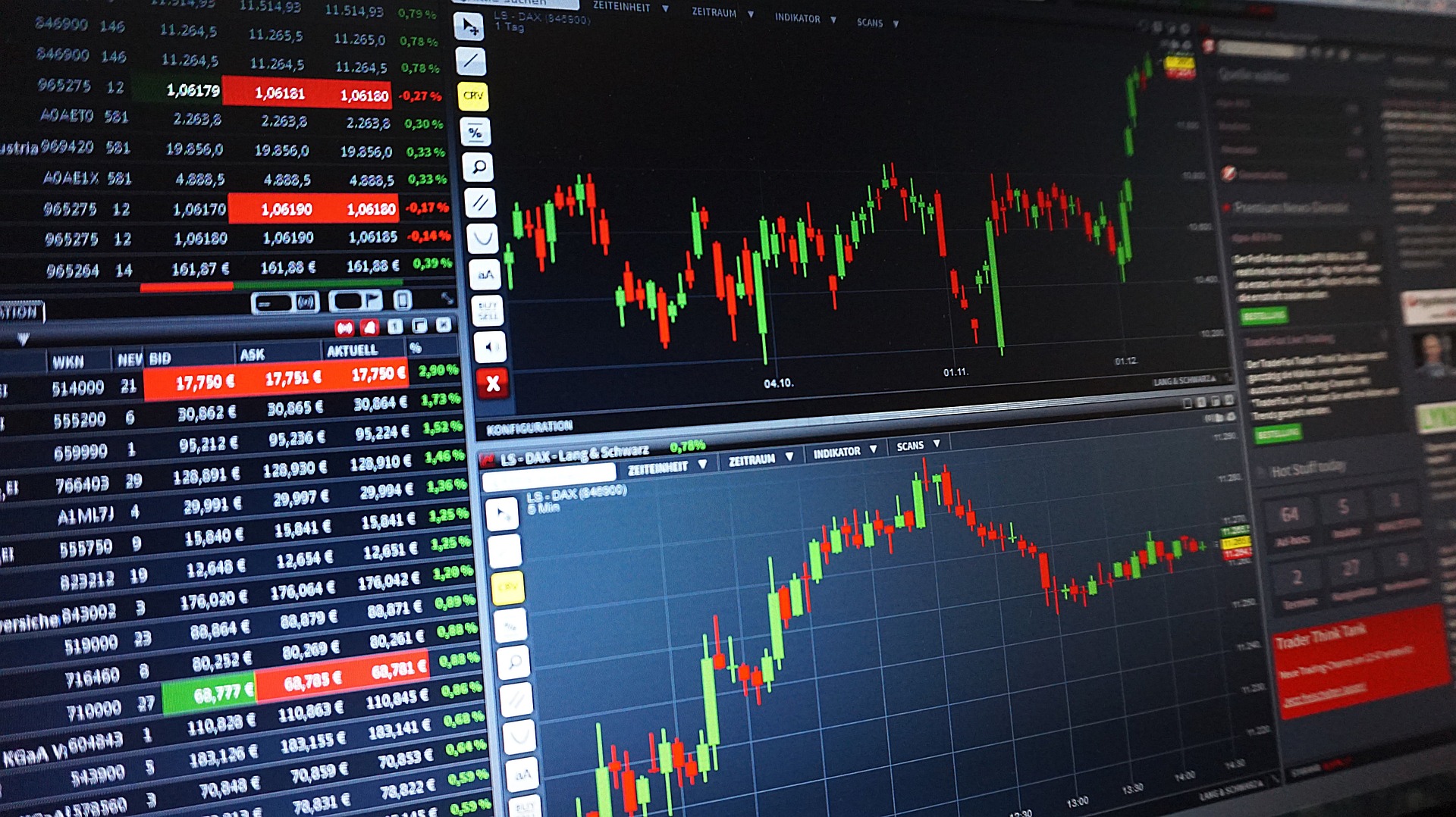Sometimes life passes right before our eyes quite fast. Other times, it seems to move painfully slow, all depends on the season at hand. But one constant in both cases is that the wheels of time keep ticking on for all of us no matter the season.
It’s been over a decade since I embarked on this lifelong journey of trading the markets. From tremendous learning and growth to countless lessons, and mistakes, not to mention the struggle to figure out how to be successful in this business. I wallowed in my unfounded track of thoughts, from when the idea of starting the company first came alive, to putting together the course, to launching the product to the public. I remembered how horrible my first article was when I started writing. Now 15 years since I started trading, and six years since Fourthstreet Consultants came to life. The industry has grown profoundly; more players right from forex brokers, and trainers, and greater awareness. When I started there was no industry, even the country’s legal framework to govern trading had not been put forth.
However, it’s not so much about the number of years, but the life in the years. The experiences, challenges, lessons, wins, and losses, all rolled up in one basket. I felt such an immense desire to share some of my lessons with our traders and the trading community at large. The possibility of impacting, encouraging, or awakening just one reader was enough motivation to pen down this piece.
Let’s indulge.
- Following A Proper Trading Plan Contributes to 50% of Your Trading Success
Let’s face it. What makes trading such a challenging profession for new traders lies not in the technical part of trading, but in the discipline to respect risk, follow a fixed system, and not to over-trade. It’s extremely difficult for us, humans, to put in the best performance in doing tasks & projects, even times when it’s not fun.
As a retail trader, you have the freedom to make choices and interact with the markets as you wish; the ultimate blessing and the curse of online trading. You can choose to break some or all the rules and be lured by greed and fear. And I can assure you, no matter how disciplined you are in your normal life, without proper guidance and mentorship, it is extremely challenging to keep it together for long in trading without breaking the rules. The emotions of fear and greed rule the world, sometimes even without our knowledge.
That said, a trader’s only path to be successful in this business is to develop a robust and balanced trading plan, and then follow it to the letter, not only when winning but also when experiencing a losing streak. I learned this the hard way after months of trying to outsmart the markets. Consequently; the markets humbled me over and over again until the lesson stuck. I have never looked back since then.
- It’s Not About Being Right All The Time, And No One Can
When I started trading, I had such an egoistic urge for my trades to turn out in my direction. I was obsessed with chart analysis. I wanted to win in most if not all my trades. With time, and after thorough discipline from the markets, I learned that it was never about being right. I was able to track some mentors, and I started reading some of the best trading books at the time. As I grew as a trader, I had to unlearn these habits, and completely change my mindset and approach to trading.
A trader’s primary focus should be on how much money they are making when they are right, and how much they are losing when they are wrong. With a risk-to-reward ratio of only 1:2, you only need to win 4 out of 10 of your trades to be profitable. Numbers don’t lie. That’s the trick. That’s the magic. The mathematics of a 2nd grader is all the math you need for trading. A simplified price action approach is straightforward; a quantified system that has been tested & proven over time.
- The Set and Forget Test
I truly feel for traders struggling out there, some do not even get sleep while following every tick in the markets where they have active trades. And for others who manage to sleep, it’s barely a sound sleep, with half of their mind still hooked to the market flows. I know this because I was no exception.
A simple test to tell if your trading system and approach is healthy is whether you can set up a trade in the markets, close the computer, and move on with your day without being bothered too much by the outcome. Or leave your trade(s) running through the night while you get a sound good night’s sleep. This is the real test for your entire trading plan, from your risk exposure to your confidence in your market analysis that guides your trade entries.
If you are constantly worried about your trades that are running, then you either do not have confidence in your market analysis, which guided you to take the trade, or you have risk more than you should in your current trades, or more than you can afford to lose.
For the latter, you can lower your risk exposure to a minimum level. As a rule of the thumb, you shouldn’t be risking more than 1-2% of your trading capital in one single trade. As for the former, you’ll have to train more to sharpen your market analysis or get help in the form of a trading course or an experienced mentor to polish you on how to mark out good opportunities in the markets with good risk-to-reward ratios.
This is what we do at Fourthstreet Consultants via our comprehensive Forex course that comes with one-on-one mentorship with us.
- Capital Preservation is King
The norm for most beginning and struggling traders is trying to force trades from the markets every other minute and hour. The lack of patience and the urge to quickly double their money blinds them to want to trade every other time. This causes them to force trades and lose their limited capital in trades that are not well formed and with no edge to be winners. By the time some good tradable setup forms, the novice trader has already lost much of their capital, so they try to squeeze the little capital left to make up for the losses. Their psychology is already compromised, they are not acting logically by now, but are purely led by the emotions of fear and greed. The result is total failure and frustration.
The secret of professional traders, which has helped me to last and make it this far, lies in the understanding that capital preservation is as important as opening trades. I only trade when there’s a clear price action set-up that fits in my trading plan. Otherwise, why would I risk my hard-earned cash if my chances of making money in a trade are low? Not to mention my time and mental capital involved in trading. That’s it.
Unfortunately, this is a nightmare for beginning traders, especially those without proper training or any mentorship. I know this pretty well because I went through the phase. There was hardly any forex trainers around at the time, and it was an uphill task trying to tell who was a genuine coach from the internet. However, lucky for you, the industry has grown. You just have to take action, get help, and turn your trading journey around ASAP.
- Holistic Approach To Trading
This is one aspect of trading that is not quite alive in most of the traders’ forums. As I gained more experience from my earlier trading years, I learned that successful trading is dependent on making sound judgments on when and where to risk your money. This may be true for other businesses, but in trading, it’s intense because this is an everyday undertaking. In seasons when other areas of your life are not in sync with your normal mental flow, you’re prone to suffer or struggle in your trading.
An example is when you have lost someone close, or a tragic event in your life, or those around you, or extreme distress in personal relationships. I had to master my psychology and tell when my mental judgment was compromised. It doesn’t happen often, but when it does it’s best to take a break until your mind clears, then you can resume your normal trading business. In any case, the markets are not going anywhere.
- Think Long-term; Look at the Big Picture
When starting as traders, we can easily be overwhelmed by the drive and passion to trade and see results, mostly positive results with big figures. Whereas such a drive is good to fuel our learning journey, it can also be the stumbling block to grow into successful traders in the long term.
It’s common for new traders to check on their performance every day, and to try and judge their performance on a weekly or a monthly basis. The urge to be profitable and share with your friends or family how much you’re ‘killing it’ in the markets when you should be doing the complete opposite, i.e. never share about your open trades and performance with your peers or even other traders. You can read all about that in a previous article we posted on why you shouldn’t share your open trades.
Summing up our point, it’s impractical for a trader to try and rate their performance based on a few trades, say 10 or 20 trades, or over just a month or two. You can only evaluate your performance after trading the markets consistently over a considerable amount of time, which is one to two years. In the meantime, your focus must remain to polish your trading plan and grow your discipline, while keeping your risk exposure to considerable levels through proper position sizing.
Start by targeting to make 3% returns per month, then as you grow and get better at trading, raise it to 4 %, and move on like that. Think long-term. Think about the trader you want to become in two to three years, as opposed to the profit you can make in a week.
As you can see, I can keep going about the limitless lessons I have learned from trading the markets for the last 15 years. What is more, trading has shaped other areas of my life. I can be extremely patient when the situation calls for patience, and equally aggressive depending on the matter at hand. To sum it all up, a good trader is humble and open-minded. Ready to be corrected; a constant student of the markets at all times, and life in general. Or at least this is what trading has taught, and made me over these years.



